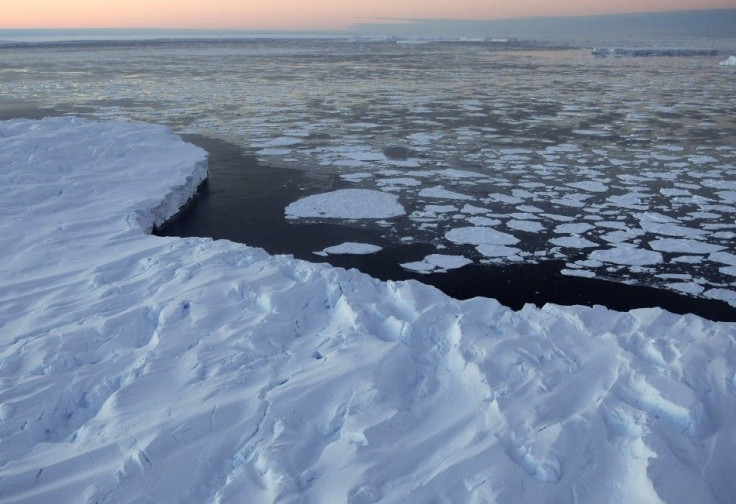Rising Temperatures Cause Record Melting of Arctic Ice

Soaring temperatures in July left the amount of Arctic ice at its lowest level on record, continuing a trend of diminishing ice masses that reflects a steady increase in the planet's temperature.
The estimated volume of Arctic ice represents a decline from 2007, which was then a record low. Air temperature over the Arctic was above average by double digits for the first part of July, causing a sharp decline in the volume of ice despite the temperatures dropping in the later part of the month.
"One year doesn't say too much in and of itself, but the long-term downward trend and the series of very low years is indicative of a thinner ice cover and warming temperatures," Walt Meier, a National Snow and Ice Data Center scientist said in an email to Bloomberg.
The vanishing ice represents a significant piece of evidence for scientists who have been closely watching Arctic ice levels as an indication of the extent of climate change.
"Arctic sea-ice decline is perhaps the best evidence around that something truly unusual is happening to our climate," Ted Scambos, another NSIDC scientist, said in an email. "Historical records and changes in high Arctic coastal areas that have been icebound for several thousand years indicate that this is not just 'a bad decade to be ice,' but something outside the normal range of climate."
© Copyright IBTimes 2025. All rights reserved.





















